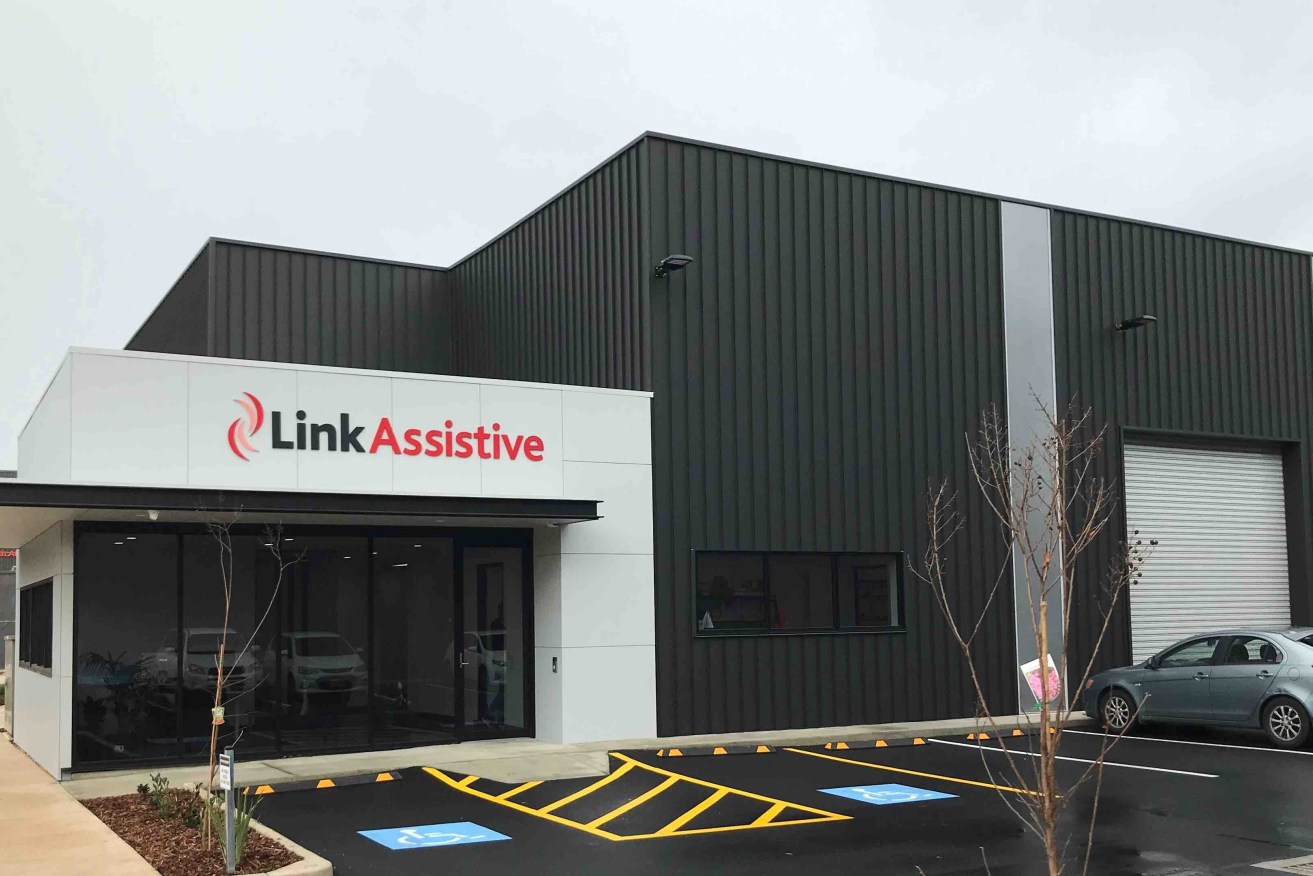Link Assistive gazing towards a brighter future
Medical technology supplier Link Assistive plans to expand its business from its new state-of-the-art facility at Tonsley Innovation District.


The company develops assistive technology to help those with physical and cognitive disabilities use smart devices.
Previously based in a house in the southern Adelaide suburb of Pasadena, the company moved into the new purpose-built 600sqm space last month following an 18-month build.
They are one of only two Australian companies developing eye gaze technology, which helps those with severe physical challenges control a device through eye movement.
The technology replaces keyboards and mouses and allows users to open a link by focusing their gaze on it for half a second or a second.

Layne has been using eye gaze technology for about 10 years. Photo: Tobii Dynavox.
Link Assistive founder Bas Tijdhof said the company had outgrown its former headquarters, which lacked full accessibility for clients through wide hallways, ramps and disabled toilets, and moving into the Tonsley Innovation District allowed them to purpose build these requirements while also being located next to other companies that have links to their industry.
The Tonsley Innovation District was launched on the former Mitsubishi car manufacturing plant in 2012. It has grown to now house more than 1,700 employees across its four core sectors of Cleantech and Renewable Energy, Health and Medical Devices and Assistive Technologies, Mining and Energy Services, and Automaton Software and Simulation.
Tijdhof said Link Assistive fit naturally into the mix at Tonsley and the move allows the company to explore partnerships with other tech businesses at the site and recruit up to four or five staff.
He said the ability to design their own space was a major attraction.
“What we need was a little bit harder to find,” Tijdhof said.
“We needed a relatively small warehouse with consultancy rooms and office space, and that type of stuff, which is a combination that’s a bit tricky to find elsewhere.
“We’d been looking at a new site for quite a while, and we ended up being able to work with a building company to get a purpose-designed setup for our business.
“Tonsley made sense for us to be close to similar businesses and to Flinders University with their medical device partnering program, and there are also other companies who use smart home technology, so it’s good to build on that network and maybe encourage future partnerships.”
The company worked with Tonsley and builders to design a space that fit their needs, including everything from secure storage, office space, a workshop, training rooms and equipment trial spaces.
“We have an equipment trial service, which is a big part of what we do,” Tijdhof said.
“That allows our clients to come and trial our equipment, free of charge, and make sure that this is the right equipment for them. So there’s actually a massive emphasis on that, and there’s quite a big space for that.”
One part of the building has a high-tech sensory and technologies room, allowing projections, light displays, sound and fibre.
“That is going to be completely inclusive, for whatever capabilities the client has physically or mentally,” Tijdhof said.
The company has worked with a Swedish tech company to develop eye-tracking for Apple iOS systems. Previously, this technology has only been compatible with Windows-based devices.
Tijdhof said this allows the company to collaborate with smart home technology companies to develop software, as many platforms use iOS operating systems.
“A user with motor neuron disease who has a smart home house or smart home technology housing can use that product to open the door and turn the lights on and open the gate and all that type of stuff,” he said.
“Previously, we had to fit out a home with all sorts of now pretty old-fashioned technology and make that accessible, whereas it’s now quite a seamless integration.”
This comes back to the company’s mantra, which Tijdhof said is about allowing people to participate in life.
“These products give people independence,” he said.
“This provides a way for a user to independently communicate and access information on a computer, and sometimes even to control a wheelchair.
“So it’s very tangible independence, I guess, in controlling a powered wheelchair just with eye gaze, and it’s just independence and a way for people to sort of participate, I guess, in life.”
Tijdhof said as a NDIS-verified provider, Link Assistive was keen to build upon its connection with Autism SA – which has also chosen Tonsley as its headquarters – having designed and installed a sensory room at its Elizabeth office in the past. Autism SA’s speech pathology team also trial Link Assistive’s communication equipment with their clients regularly.
He said he also saw natural, future partnerships with Flinders University’s Medical Device Partnering Programme and the Tonsley-based Global Centre for Modern Ageing, with many of Link Assistive’s products including ceiling, flooring and table interactive multisensory projection systems having practical and potentially life-changing advantages to older users.




